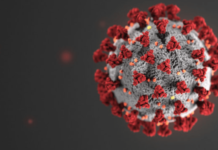Peter Apps
Four years after World War Two, former British Prime Minister Winston Churchill was asked to reflect on what would have prevented the conflict. The greatest mistake after World War One, he said, was not to properly resource the League of Nations, the international forum of countries created in 1919. Doing so ‘would have saved us all.’
The modern United Nations, a more muscular and inclusive body than its predecessor, has survived close on four times longer than the League. But as its General Assembly meets this week in New York, the U.N. – like the League – risks falling increasingly short. Few believe change, while necessary, is imminent or likely.
Decades of attempts to reform the U.N. Security Council are – like the Council itself on issues such as Syria, the South China Sea and wider human rights – comprehensively deadlocked. The five permanent members – Britain, France and the United States on one side, Russia and China the other – are increasingly at loggerheads. Other emerging powers such as India and Brazil want permanent access, but there seems little or no road map to obtaining it. Those five permanent members have minimal




















